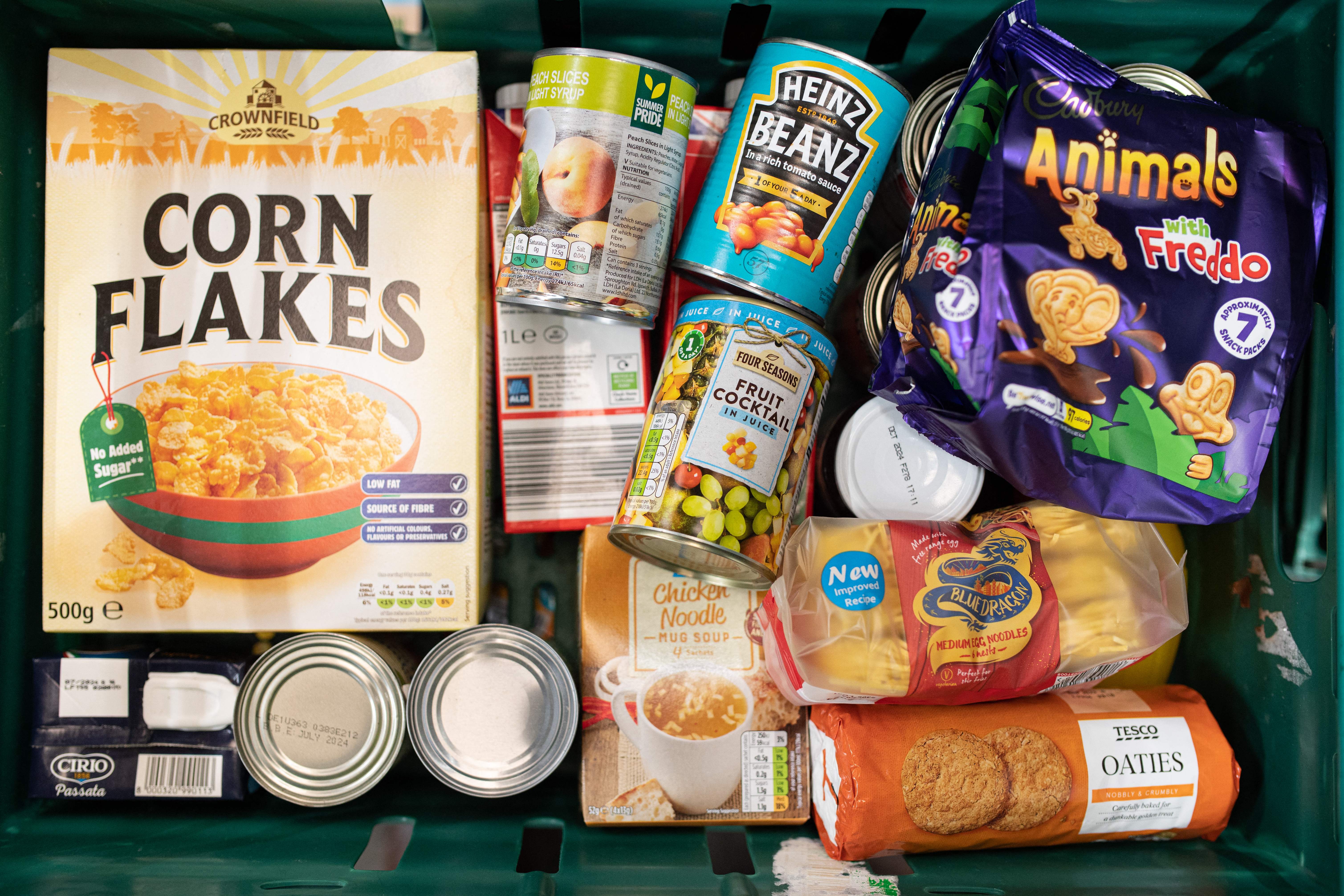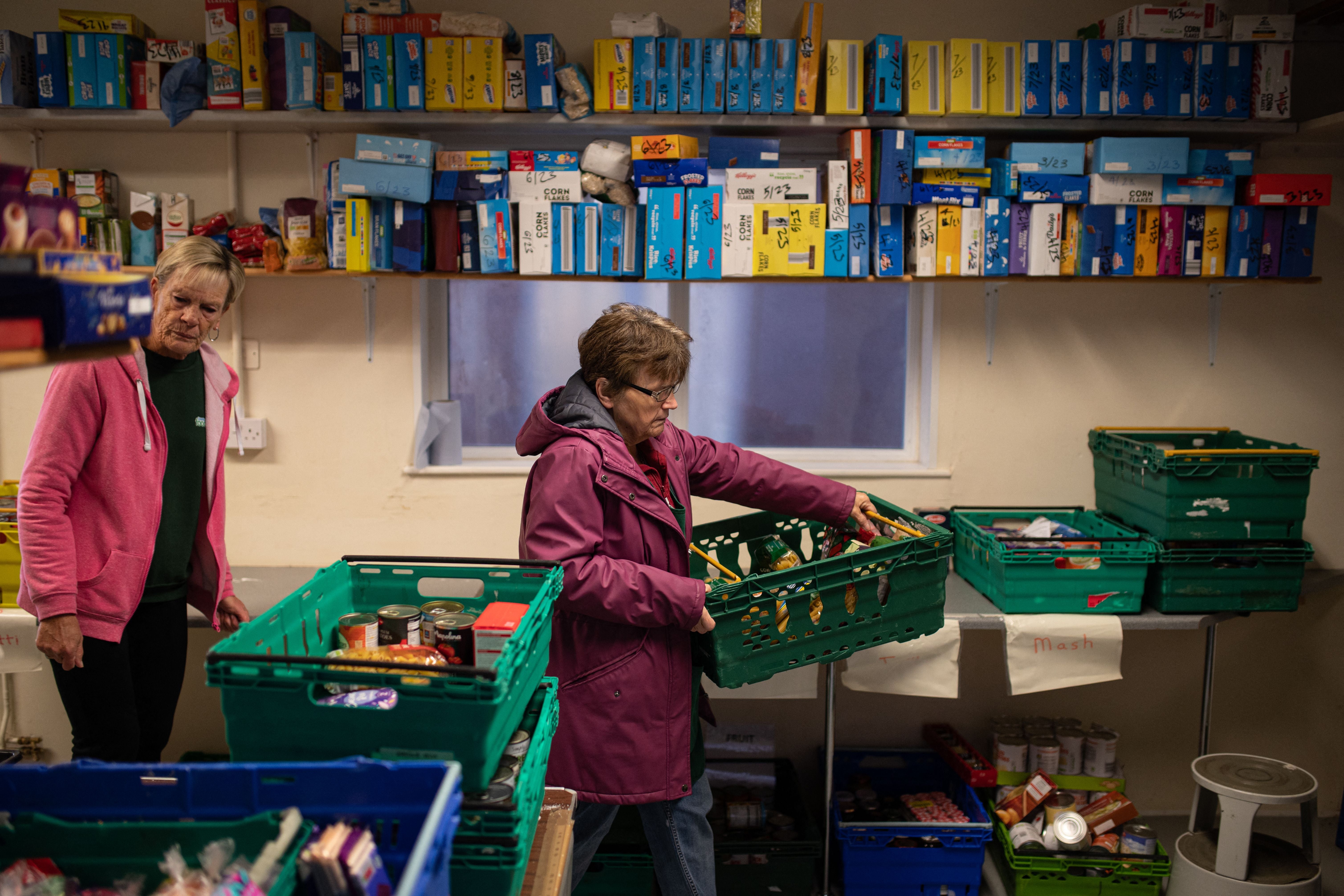Food banks experiencing ‘unprecedented’ demand as number of emergency parcels hit record high
Over 1.1million emergency food parcels were handed out for children - a 27 per cent rise on the year before

Food banks are experiencing an “unprecedented rise” in demand, with almost three million food parcels provided to those in need in the past year, new data shows.
The Trussel Trust charity, which runs a nationwide network of over 1,000 food banks, has distributed more emergency food parcels at their sites than ever before, according to their annual figures released on Wednesday. There has been a 37 per cent increase in parcels handed out compared to last year and a 38 per cent increase in the number of people who are using food banks for the first time.
Charities called the explosion in need an “avoidable public health disaster” and called on the government to increase financial support for the poorest. Labour called the figures “devastating”, saying they revealed the “price families are paying for 13 years of Tory economic failure”.
A government spokesperson said they recognised the pressures of the rising cost of living and had uprated benefit payments accordingly.

More than 760,000 people used a food bank in The Trussel Trust network for the first time in the past year, the charity’s new annual data showed.
Over 1.1 million emergency food parcels were handed out for children – a rise of 27 per cent on the year before, according to the statistics.
Brian Thomas, who is chief executive at a foodbank in South Tyneside, said they were seeing an “unprecedented rise in the number of people coming to the food bank, particularly employed people who are no longer able to balance a low income against rising living costs.”
He warned that food donations weren’t keeping up with the increase in need and added that a high number of families were also struggling to afford basics.
Sabine Goodwin, from the charity Independent Food Aid Network, which represents independent food banks, said the figures “represent the very tip of the iceberg when it comes to wider food insecurity”.
She added: “This staggering data must propel our government to take immediate cash first, income-focused actions with the long term in mind.
“The UK’s poverty crisis is having a devastating impact on people’s physical and mental health to the detriment of society as a whole. This is an avoidable public health disaster.”
John, 35, who was forced to use a food bank when he was made homeless, said: “Ultimately, food banks shouldn’t be needed in the first place, everyone should be able to afford to buy their own food and afford the essentials.”
Emma Revie, chief executive of The Trussel Trust, added: “The continued increase in parcel numbers over the last five years indicates that it is ongoing low levels of income and a social security system that isn’t fit for purpose that are forcing more people to need food banks, rather than just the recent cost of living crisis or the Covid-19 pandemic.
“Food banks were set up to provide short-term support to people in an emergency, they are not a lasting solution to hunger and poverty.”
A government spokesperson said: “We are committed to eradicating poverty and we recognise the pressures of the rising cost of living which is why we have uprated benefits by 10.1 per cent as well as making an unprecedented increase to the national living wage this month.
“This is on top of changes already made to universal credit which mean claimants can keep more of their hard-earned money – a boost worth £1,000 a year on average.
“We are also providing record levels of direct financial support for the most vulnerable – £1,200 last year and a further £1,350 in 2023/24, with over eight million families starting to receive their first £301 cost of living instalment from yesterday – while the household support fund is helping people with essential costs.”






Join our commenting forum
Join thought-provoking conversations, follow other Independent readers and see their replies
Comments